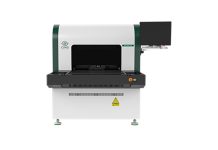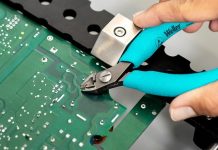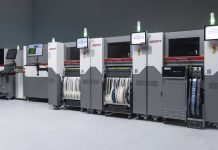A new report by IPC, reveals Europe’s growing dependency on other regions for electronics manufacturing in critical and strategic sectors including aerospace and defence. Despite the adoption of the European Chips Act, the Securing EU’s Electronics Ecosystem report finds the EU’s market share in critical electronics components beyond chips, including printed circuit boards (PCBs), electronic manufacturing services (EMS) and advanced packaging, will decline to 15 percent by 2035.
The PCB industry segment has faced significant erosion over the last two decades. Revitalizing and growing electronics manufacturing – beyond chips – is essential to building a secure and robust European electronics ecosystem. A “silicon to systems” approach is necessary to support ongoing EU technological leadership and meet strategic goals.
“An innovative and resilient European electronics manufacturing industry is vital to ensuring the region’s access to defence and aerospace systems, medical technologies, and communications infrastructure. The growing strategic dependencies highlighted in the report are alarming as they undermine Europe’s ability to achieve key strategic priorities from a strengthening of the defense industrial base to the green and digital transitions,” says Sanjay Huprikar, president of Europe and South Asia Operations, IPC.
The report assesses how reliant Europe is on non-EU manufacturing across eight strategic sectors including aerospace/defence, automation, mobility, healthcare, and renewable energy. Highlights of the report include:
- Across the key sectors, EU electronics production is expected to lag behind global trends and decline from 16.5% global market share today to 15% by 2035.
- Those numbers become starker when looking at subsectors of the European electronics manufacturing industry, such as PCB production (1.7% global market share by 2035), advanced packaging (1.4%) and IC substrate production (0.7%) respectively.
- Europe’s share of electronics manufacturing has fallen significantly in the last two decades despite demand for electronics soaring.
- Global PCB production has more than doubled since 2000 with European demand today at an estimated EUR 7.87 billion.
- Despite soaring demand for PCBs, European PCB production is projected to satisfy only 11 percent of European demand for PCBs (down from 17.5% today).
The study findings echo growing calls for strategic investments and comprehensive policies to enhance the EU’s competitiveness including the 17 and 18 April European Council conclusions stating that Europe “needs to reduce its strategic dependencies in sensitive sectors– energy, critical raw materials, semi-conductors, health, digital, food and critical technologies – and in other sectors such as chemicals, biotechnology and space.”
In response to the study, the European electronics manufacturing industry calls for an “Electronics Manufacturing Strategy” under the 2024-2029 European Commission mandate to help the EU better withstand global disruptions and maintain a competitive edge. An industry “Call-to-Action” shared today includes support from leading European electronics manufacturers and Trade Associations raising awareness for this situation.
“Any new industrial policy supporting competitiveness needs to embrace electronics manufacturing as a key enabler for innovation and resiliency in strategically important sectors, like aerospace and defence. A dedicated strategy, including EU targets for electronics manufacturing, will help Europe compete with global competitors” said Alison James, IPC senior director, European government relations.
IPC is hosting a meeting today with representatives of the European Commission and industry experts to review the study and call-to-action. This event will provide a forum for discussion of the situation and the need for a more ambitious and focused strategy to revitalize European manufacturing.
View full Securing Europe’s Electronics Ecosystem report.
View Call-to-Action for a European Silicon to Systems Electronics Manufacturing Strategyon behalf of industry members and associations.










